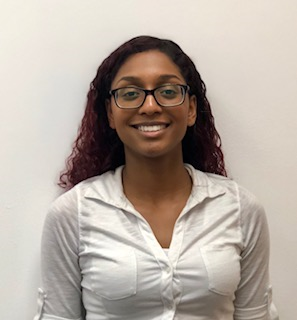Embracing the Transition from Student to Preceptor
 Cathaerina Appadoo is a first generation American; her mother was born and raised in Haiti and her father was born and raised in Guyana. She watched her mother work multiple jobs while completing her college education because, like so many immigrant parents, she was determined to provide a better life for her children. Cathaerina’s mother wanted to be a physician and voice for underserved people from similar backgrounds. Although she put her dream “on hold” while the family grew, her aspiration planted a seed in Cathaerina and ignited a desire to enter the medical profession and provide care to those in greatest need.
Cathaerina Appadoo is a first generation American; her mother was born and raised in Haiti and her father was born and raised in Guyana. She watched her mother work multiple jobs while completing her college education because, like so many immigrant parents, she was determined to provide a better life for her children. Cathaerina’s mother wanted to be a physician and voice for underserved people from similar backgrounds. Although she put her dream “on hold” while the family grew, her aspiration planted a seed in Cathaerina and ignited a desire to enter the medical profession and provide care to those in greatest need.
Cathaerina describes herself as “a Black woman with a long interest in minority health.” She volunteered for two years at the Minority AIDS Program (MAP) at the Alachua County Health Department (ACHD). When she met people affected by HIV/AIDS, she noticed that many were people of color experiencing disparities in the quality of care and access to care. She also witnessed failed attempts within her own family to communicate with physicians and this fueled her interest in becoming a health provider who connected with her patients.
Cathaerina’s summer practicum with MAP in 2016 was life changing. Working directly with clients, she saw the substantial burden of HIV in the Black community, her community. Black men who have sex with men (MSM) and black women are disproportionately affected by HIV in Alachua County and Cathaerina believes that Black MSM are the most difficult to reach and engage in care due to social stigma. Black women often attend to family needs over their own healthcare needs. Women’s health is complicated further by recent reductions in federal funds for women’s health services. It is difficult to access healthcare and resources related to sexual health and women of color face even greater challenges.
Meeting people with great need and little access to care sparked Cathaerina’s passion about HIV prevention in her community. Consistent with this passion, upon graduating, Cathaerina accepted the position of Minority AIDS Coordinator (MAC) at the ACHD. The MAC serves as Community Liaison, Resource Officer, and Program Consultant from the Department of Health’s Bureau of HIV/ AIDS to the minority populations of fifteen counties in North Central Florida (Alachua, Bradford, Columbia, Citrus, Dixie, Gilchrist, Hamilton, Lafayette, Lake, Levy, Marion, Putnam, Sumter, Suwannee, and Union Counties). As MAC, Catherina wants to focus on community outreach and provide education to marginalized and underserved populations who are uninsured, homeless, have low income, lack transportation, and have little trust in the established medical community. She wants to take programs and services to the people where they live, work and play.
“And that is how change happens. One gesture. One person. One moment at a time.”
– Libba Bray
As a CGSWSR practicum preceptor, Cathaerina wants practicum students “to really get out in the community and experience the disparities that they learn about in class.” Cathaerina knows students will gain a new perspective from working directly with clients. “It will help them understand more about life and healthcare outside the realm of [being a] university student. I want students to be inspired by their practicum to work in their communities and make the changes needed to eliminate health disparities in areas where they are passionate.” She believes that “every student interested in healthcare should participate in a health disparities practicum. We need health providers that are culturally competent and patient-centered – the Health Disparities in Society minor is an amazing step toward creating future providers who can make health equity a reality.”
Last year a course assignment challenged Cathaerina to reflect on the relationship between social inequality and limited access to health care among people of color and low socioeconomic status. After careful reflection, she wrote, “I work with low SES racial and ethnic minorities, as well as the LGBTQ+ population, and see the theories of social inequality playing a role in poorer health outcomes. I see stigma surrounding HIV/AIDS in the black community that leads to increased stress and anxiety among affected individuals. I see low SES populations whose limited access to care and resources leaves them without the knowledge or ability to fully utilize preventive services, receive quality care or experience continuation of care. To keep these populations from falling through the cracks, they need representation as well as our outreach efforts.”
Today, Cathaerina’s leadership and mentoring of practicum students will help ensure that her insights become reality for Floridians in fifteen counties.
Feminist Praxis, or the inextricable link between feminist scholarship and practice, is at the heart of the transformational power of gender, sexualities, and women’s studies. The Center is proud to place over 100 students a year in internship and practicum experiences where students put their academic learning into practice that transforms themselves, their communities, and the world. Our Preceptor Profiles feature our community partners who contribute to this important aspect of the Center’s mission.